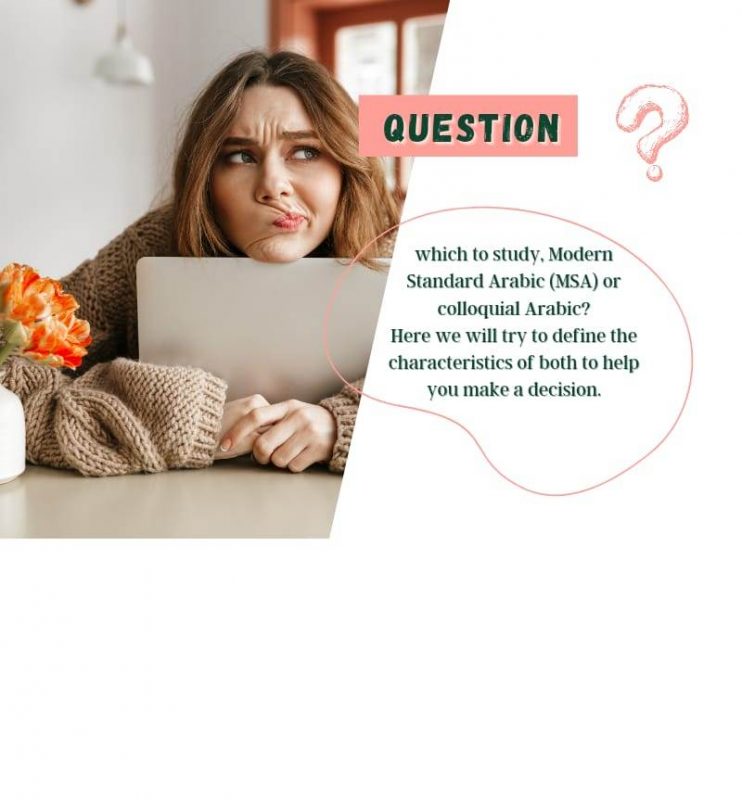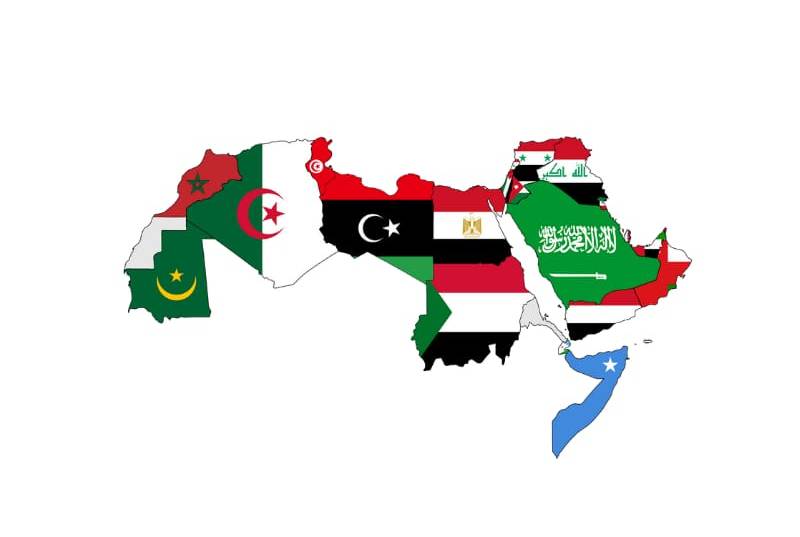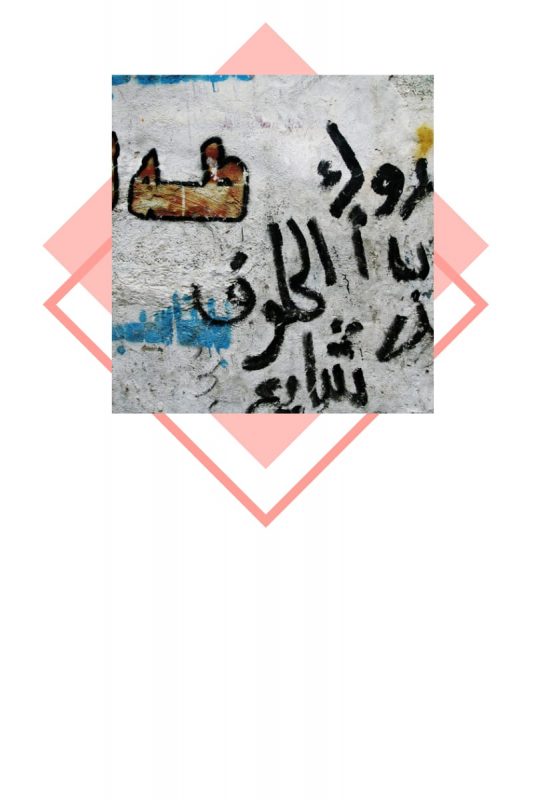
Here we will try to define the characteristics of both to help you make a decision.
First the Colloquial Arabic
Colloquial is the vernacular language that most people use to communicate in their daily life. It varies from country to country in pronunciation but it has a general classification depending on the region:
- Peninsular Gulf Arabic
- Levantine Arabic
- Maghrebi (Western) Arabic
- Egyptian Arabic
- Iraqi Arabic

Colloquial Arabic is characterized by:
1- The colloquial develops rapidly and renews itself, neglecting what it finds unnecessary and borrowing from other languages to cope with the necessities of life, and employs the appropriate words that express the situation regardless of its origin. But it relies on Classical/ Standard Arabic as its primary source and reference.
2 Abbreviations is common in Arabic colloquial, as it is able to describe in one sentence or one phrase or perhaps one word an entire situation.
3- It is a lively language, because it is suitable to talk about everyday life, informal conversational settings, emotions, sweet and hard and time with depth, great ease and much more fluency than the MSA

Second: Modern Standard Arabic (MSA):
Standard Arabic is the language used in formal, situations such as conferences, interviews and lectures, and we find it in the print media and news, and it is the language of writing.
Its characteristics:
1- It is the official language of all Arab countries, and it is the language of the religion for more than a thousand million Muslims (a billion).
2- It is the language of writing and the media in most cases.
3- It is the means of communication between the Arab peoples when the colloquial fails.
4- Modern Standard Arabic depends primarily on grammar in the formation of the sentences, and its grammatical system is pretty much logical.

The relationship between Modern Standard Arabic and its spoken dialects:
The similarities
Classical /standard Arabic is the origin and basis of all Arabic dialects. This is why we find a close similarity between the colloquial and Classical/ Standard Arabic and a similarity in dialects between each other.
The differences
1- The colloquial do not adhere to the standard grammar of the Arabic language, it doesn’t have vowel marks, for example, and the conjugation and form of verbs in colloquial Arabic differ from the classical/ standard Arabic, and it does not adhere to a specific word order in sentences because it is the spoken but not the written language.
2- There are no scientific or technical terms in the colloquial

